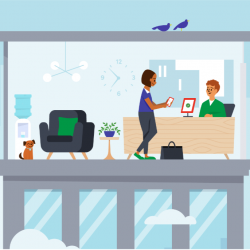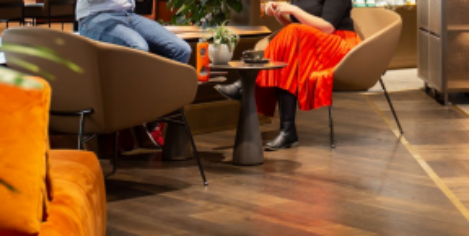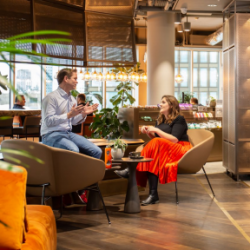To provide the best experiences, we use technologies like cookies to store and/or access device information. Consenting to these technologies will allow us to process data such as browsing behaviour or unique IDs on this site. Not consenting or withdrawing consent, may adversely affect certain features and functions.
The technical storage or access is strictly necessary for the legitimate purpose of enabling the use of a specific service explicitly requested by the subscriber or user, or for the sole purpose of carrying out the transmission of a communication over an electronic communications network.
The technical storage or access is necessary for the legitimate purpose of storing preferences that are not requested by the subscriber or user.
The technical storage or access that is used exclusively for statistical purposes.
The technical storage or access that is used exclusively for anonymous statistical purposes. Without a subpoena, voluntary compliance on the part of your Internet Service Provider, or additional records from a third party, information stored or retrieved for this purpose alone cannot usually be used to identify you.
The technical storage or access is required to create user profiles to send advertising, or to track the user on a website or across several websites for similar marketing purposes.
 These days it seems like everyone is looking to become more entrepreneurial. It’s a word that’s often used by big companies on the hunt for innovative thinkers and new ways of doing things. But sadly, the workplace doesn’t always work for those with entrepreneurial minds. It is too rigid, too hierarchical, too conventional. Entrepreneurs, by nature, are rule-breakers, always looking for new opportunities and fresh ideas that could change the world. From my research, they differ from other businesspeople in some fundamental ways – six ways, to be exact. More →
These days it seems like everyone is looking to become more entrepreneurial. It’s a word that’s often used by big companies on the hunt for innovative thinkers and new ways of doing things. But sadly, the workplace doesn’t always work for those with entrepreneurial minds. It is too rigid, too hierarchical, too conventional. Entrepreneurs, by nature, are rule-breakers, always looking for new opportunities and fresh ideas that could change the world. From my research, they differ from other businesspeople in some fundamental ways – six ways, to be exact. More →




































February 8, 2023
Some questions about AI, a world drowning in content and the human centipede of creativity
by Mark Eltringham • Automation, Comment, Technology